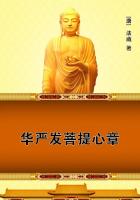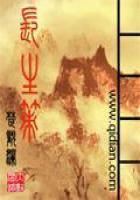THE RAMESSEUM
"This, my lord, is the thinking-place of Rameses the Great."
So said Ibrahim Ayyad to me one morning--Ibrahim, who is almost as prolific in the abrupt creation of peers as if he were a democratic government.
I looked about me. We stood in a ruined hall with columns, architraves covered with inscriptions, segments of flat roof. Here and there traces of painting, dull-red, pale, ethereal blue--the "love-color" of Egypt, as the Egyptians often call it--still adhered to the stone.
This hall, dignified, grand, but happy, was open on all sides to the sun and air. From it I could see tamarisk- and acacia-trees, and far- off shadowy mountains beyond the eastern verge of the Nile. And the trees were still as carven things in an atmosphere that was a miracle of clearness and of purity. Behind me, and near, the hard Libyan mountains gleamed in the sun. Somewhere a boy was singing; and suddenly his singing died away. And I thought of the "Lay of the Harper" which is inscribed upon the tombs of Thebes--those tombs under those gleaming mountains:
"For no one carries away his goods with him;Yea, no one returns again who has gone thither."
It took the place of the song that had died as I thought of the great king's glory; that he had been here, and had long since passed away.
"The thinking-place of Rameses the Great!"
"Suttinly."
"You must leave me alone here, Ibrahim."
I watched his gold-colored robe vanish into the gold of the sun through the copper color of the columns. And I was quite alone in the "thinking-place" of Rameses. It was a brilliant day, the sky dark sapphire blue, without even the spectre of a cloud, or any airy, vaporous veil; the heat already intense in the full sunshine, but delicious if one slid into a shadow. I slid into a shadow, and sat down on a warm block of stone. And the silence flowed upon me--the silence of the Ramesseum.
Was /Horbehutet/, the winged disk, with crowned /uroei/, ever set up above this temple's principal door to keep it from destruction? I do not know. But, if he was, he failed perfectly to fulfil his mission.
And I am glad he failed. I am glad of the ruin that is here, glad that walls have crumbled or been overthrown, that columns have been cast down, and ceilings torn off from the pillars that supported them, letting in the sky. I would have nothing different in the thinking- place of Rameses.
Like a cloud, a great golden cloud, a glory impending that will not, cannot, be dissolved into the ether, he loomed over the Egypt that is dead, he looms over the Egypt of to-day. Everywhere you meet his traces, everywhere you hear his name. You say to a tall young Egyptian: "How big you are growing, Hassan!"
He answers, "Come back next year, my gentleman, and I shall be like Rameses the Great."
Or you ask of the boatman who rows you, "How can you pull all day against the current of the Nile?" And he smiles, and lifting his brown arm, he says to you: "Look! I am strong as Rameses the great."
This familiar fame comes down through some twenty years. Carved upon limestone and granite, now it seems engraven also on every Egyptian heart that beats not only with the movement of shadoof, or is not buried in the black soil fertilized by Hapi. Thus can inordinate vanity prolong the true triumph of genius, and impress its own view of itself upon the minds of millions. This Rameses is believed to be the Pharaoh who oppressed the children of Israel.
As I sat in the Ramesseum that morning, I recalled his face--the face of an artist and a dreamer rather than that of a warrior and oppressor; Asiatic, handsome, not insensitive, not cruel, but subtle, aristocratic, and refined. I could imagine it bending above the little serpents of the sistrum as they lifted their melodious voices to bid Typhon depart, or watching the dancing women's rhythmic movements, or smiling half kindly, half with irony, upon the lovelorn maiden who made her plaint:
"What is sweet to the mouth, to me is as the gall of birds;Thy breath alone can comfort my heart."
And I could imagine it looking profoundly grave, not sad, among the columns with their opening lotus flowers. For it is the hall of lotus columns that Ibrahim calls the thinking-place of the king.















